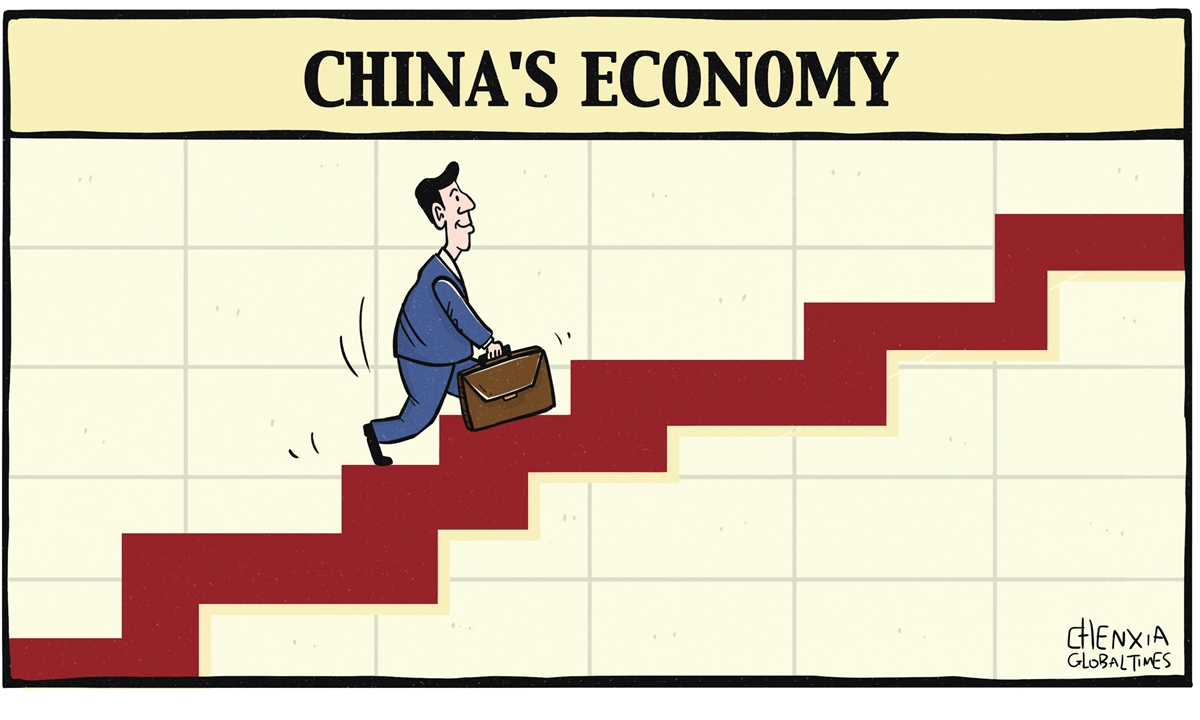
Illustration: Chen Xia/GT
Yabuli, a town in Northeast China's Heilongjiang Province, is known as the "Chinese Davos."
The town has the best ski resort in China. The Yabuli China Entrepreneurs Forum held there for 22 consecutive years is regarded as a barometer for observing China's economic confidence.
Due to the impact of the COVID-19 pandemic, the 22nd Annual Conference of Yabuli China Entrepreneurs Forum held on the second weekend of June seemed a little restrained. During the two-day conference, other visitors were not allowed to enter the ski resort where the forum was held. During the luncheon, Hu Changsheng, governor of Heilongjiang Province, led the mayors to actively promote projects and local advantages.
Some of the figures are very impressive. For example, Hu said that in China, the ratio of agricultural products processing industry to total agricultural output value has reached 2.45:1, while the figure is only 0.5:1 in Heilongjiang. He said that if Heilongjiang can catch up with the average level of China, it will become an industry worth trillions, calling for entrepreneurs to invest more.
This business-friendly scenario is a typical illustration of China's difficult economic recovery.
The current Chinese economy has indeed encountered internal and external difficulties that have not been seen for many years. This has forced all places to make all efforts to adopt recovery policies.
Some cities have lifted the restrictions on real estate purchases which had lasted for years, some have adopted tax-free plans for car purchases, and more cities have decided to appropriately advance infrastructure investment and the total investment in China will exceed 30 trillion yuan. Interest rate and tax cuts at the central government level have also reached trillions of yuan.
This fully shows that there are still many tools in China's economy policy toolbox. Unlike the West, China needs to consider more factors in its economic recovery policy.
First, comprehensiveness. In the foreseeable future, pandemic prevention against the possibility of widespread infections and deaths must be advanced in China in parallel with economic recovery. China will not allow the phenomenon where there are still many COVID-19 deaths every day like in some countries. This determines that China must consider the cost of the fight against COVID-19 in its investment, consumption, trade and logistics, and ultimately secure comprehensive benefits between an economic growth and dynamic zero-COVID policy.
Second, continuity. Chinese economic circles have discussed US Federal Reserve-style recovery policies, such as issuing coupons, expanding deficits and printing more money. But a US-style recovery is a negative lesson for China. In 2020, the US' quantitative easing led the country's stock market to a temporary boom. But now, the US economy is suffering from inflation, making its policy two years ago seem more like drinking poison to quench thirst. China's inflation rate has remained around 2 percent for a long time, ensuring the sustainability of the effect China's economy policy has had in recent years.
Third, balance. If China relaxes restrictions on property purchases in first-tier cities such as Beijing, Shanghai, Shenzhen and Guangzhou and if China eases standards on green investment and environmental protection governance, the Chinese GDP may achieve faster growth. However, the regional gap and gap between the rich and poor will widen and the environment will be destroyed again. China's achievements over the past decade made through difficult reforms will all be in vain.
At present, China's economic recovery requires more social, long-term and comprehensive benefits rather than simple GDP growth. The "high-quality development" mentioned by Chinese officials requires accurate government policies, highly beneficial development effects and responsibility for the world and the future.
I am introducing the difficulties and scruples of China's economic recovery in a hope to respond to Western media's misunderstanding and smearing of Chinese economy. Moreover, I hope to let more people see the hope of Chinese economy.
As discussed during the 22nd Annual Conference of Yabuli China Entrepreneurs Forum, the more difficult it is, the more confident we should be. After all, compared with the past, China's current difficulties are not due to retrogression, but the hope of a better life.
The author is professor and executive dean of Chongyang Institute for Financial Studies at Renmin University of China. wangwen2013@ruc.edu.cn




